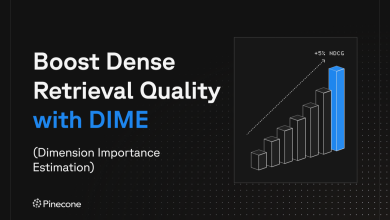
GenAI and Agentic AI are transforming customer service and enabling predictive customer service. Is your tech and data infrastructure ready and supporting this dramatic change?
GenAI and Agentic AI are game-changers for customer service
GenAI technology is already a top priority for customer service leaders. According to a recent Gartner survey, 85% of customer service leaders are already using it. It’s easy to understand why: using various GenAI technologies organizations can implement virtual assistants and customer chatbots and achieve operational efficiencies, enhance the customer experience, and gain a competitive edge
Agentic AI is taking customer service to the next level. It allows organizations to be proactive and address a CX problem before the customer even noticed there is a problem. Gartner predicts that agentic AI will autonomously resolve 80% of common customer service issues without human intervention by 2029.
Let’s drill down to understand what are the steps required to enable your organization to stop putting customers on hold.
Now: Using GenAI to achieve operational efficiencies
In a recent Deloitte State of Generative AI in the Enterprise report, they inform that “improved efficiency and productivity” continue to be the most commonly sought benefits from GenAI, whith 40% of organizations reporting they are already achieving their expected benefits in this area.
We see this very clearly in the market. Before GenAI, most organizations offered telephone-based customer assistant that can address simple, rule-based transactions.
With the emergence of GenAI, the first pilot project that many organizations are choosing is GenAI Rep Assist, see in diagram below. In this stage, human call center representatives can consult with AI-powered virtual assistants to deliver insights about a certain customer by instantly accessing that customer’s (and only that customer’s) data. This results in shorter wait and handling times, higher first contact resolution, and shorter ramp up time for new reps.
As organizations gain confidence in the virtual assistant, they begin to allow customers to use it directly using a self-service chatbot. The shift to GenAI Customer Assist marks a crucial turning point, where AI evolves from a support tool to the primary customer interface, in many cases also combining and replacing multiple customer interfaces like phone, website, and app. In this stage, using the customer data GenAI can address any customer inquiry in a personalized, context-aware manner.
While the potential for AI-driven customer service is great, so are the challenges that must be overcome. This includes the critical issues of data security and privacy, reliability of LLM responses, and overall enterprise data readiness for GenAI.
Next: using predictive AI and Agentic AI to generate growth
The next step organizations are taking, is to move from being reactive and asking “what happened?” and “why did it happen?”, to being proactive and asking “what will happen next?” and even “how can I impact the result?”.
For example, think about a telco proactively informing customers about a network failure, together with the estimated time to resolution. Or a bank recommending new products to a customer based on that customer’s status and transaction history. Being proactive allows organizations to move from achieving efficiencies in the call center, to generating meaningful conversations that benefit both customers and the company.
Cisco recently announced its new Webex AI solutions that predict and automate customer and employee experiences, with the goal of driving toward a future where AI anticipates and addresses any challenges. This is a great example of using technologies like Agentic AI to address challenges before the customer notices them, enhance productivity and in essence eliminate the need to put the customer “on hold”.
As Agentic AI technologies evolve into collaborative multi-agent ecosystems, autonomous agents will empower organizations to scale exponentially without proportional cost increases, meaning that the business value of your GenAI investment in customer service will rise indefinitely.
Data: The Fuel for AI’s Customer Service Revolution
Customer service and support leaders are eager to deploy advanced technologies like conversational GenAI, predictive AI and Agentic AI, but they cannot ignore existing issues with their data infrastructure that underpin the success of virtually any initiative they want to take on.
The following issues come up in practically every GenAI survey that asks about challenges to implementing GenAI:
- Data security and privacy
Customer data is personal and might get into the wrong hands or leaked to the LLM. Therefore, enterprise data must be masked, encrypted, isolated, and compliant with all privacy regulations.
- Reliability of LLM responses
You must ensure accurate, trusted, and personalized answers to every user question. If not, the impact of a wrong answer is immediate, negative, and potentially very damaging to your brand.
- Enterprise data readiness for GenAI
Compliant, complete, and current customer data must be accessed in a split second. Additionally, cost and scale must be controlled, with potentially hundreds or thousands of queries – made by LLM agents, functions, and human users – executing at the same time.
- GenAI brings new requirements to your data, such as:
- Interactivity: In a chatbot scenario, the relevant customer data must be fetched in milliseconds for an immediate response to each user query.
- Up-to-date data: The data must be fresh and relevant, otherwise how could GenAI answer a question about a customer’s latest payment?
- Scale: Make sure you can scale your GenAI apps to support thousands of concurrent users and massive enterprise data volumes.
To address these challenges and maximize the benefits of GenAI, heads of customer service and support should collaborate with their company’s heads of data to make sure the data infrastructure meets the new GenAI requirements, especially around data privacy and compliance.
Reimagine Customer Engagement: The AI-Powered Future
GenAI and Agentic AI are redefining customer service across industries and allowing organizations to be proactive and address customer issues before the customer notices them, eliminating the need to put the customer “on hold”.
The key to success is to develop a clear strategy and address data challenges head-on. With the right data and evolving GenAI technologies organizations can achieve significant improvements in efficiency and scale, personalization, and customer satisfaction.



